Many people in Italy have unbalanced nutrition, which may lead to overweight and thus to health issues. Create an app that helps people to follow healthier nutrition.
To discover the issues with this topic I have done 8 User Interviews on Italian people for the qualitative part and Desk Research for both qualitative and quantitative parts, to analyze the perception of diet, their approach, and their thoughts. Also, I've analyzed Myfitnesspal and Lifesum to understand competitor's app points of view on the topic.
A flexible diet is easier to follow, especially for newbies. In addition, an efficient diet will ensure results and therefore encourage to stick to the plan.
As research has highlighted a strong misunderstanding of the topic, practical tips are implemented in the app to improve the understanding of nutrition.


The onboarding allows HabEat to create a healthy diet for the user based on physical attributes and objectives.
In this section, the user finds the Cals, Macros, and Nutrition tips (Consigli Alimentari) that allow a more conscious approach to the diet.
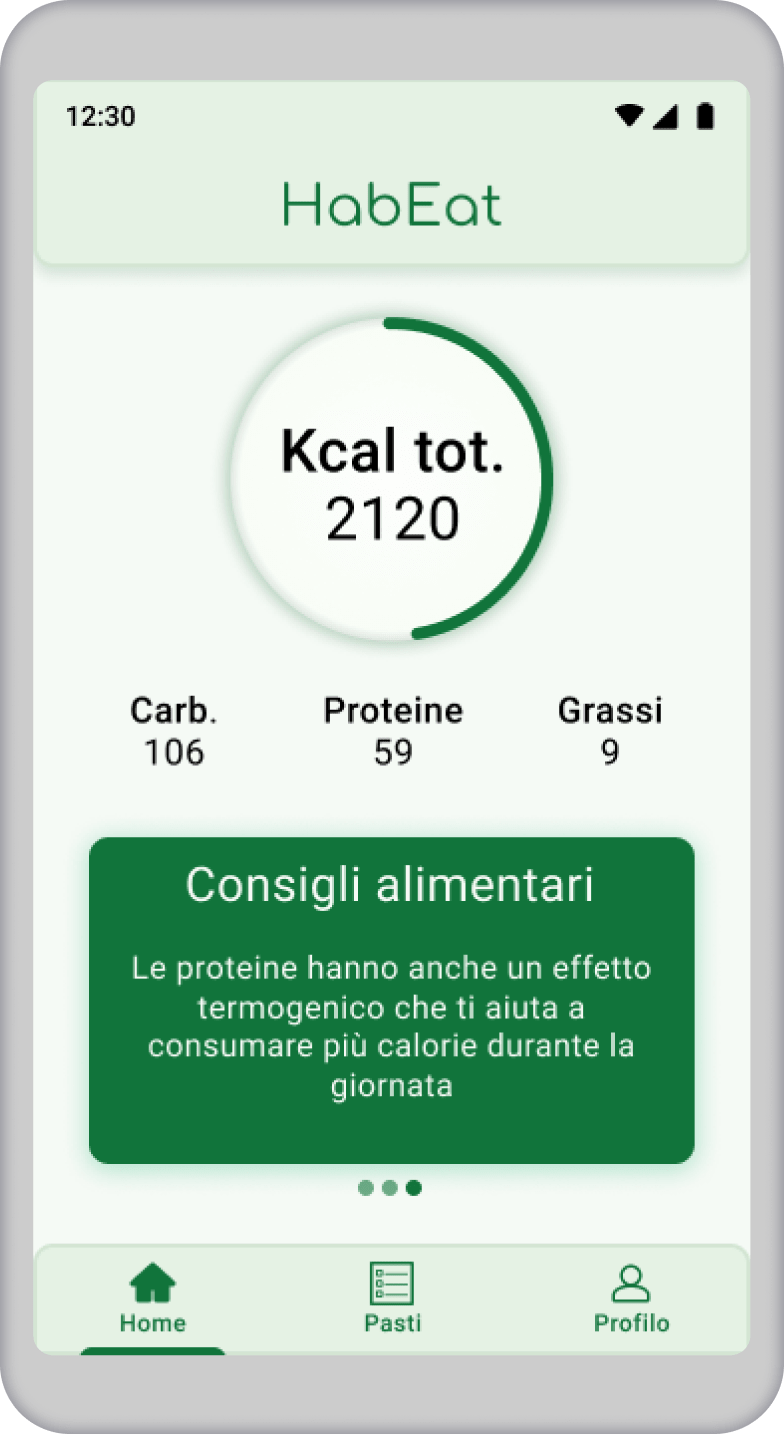
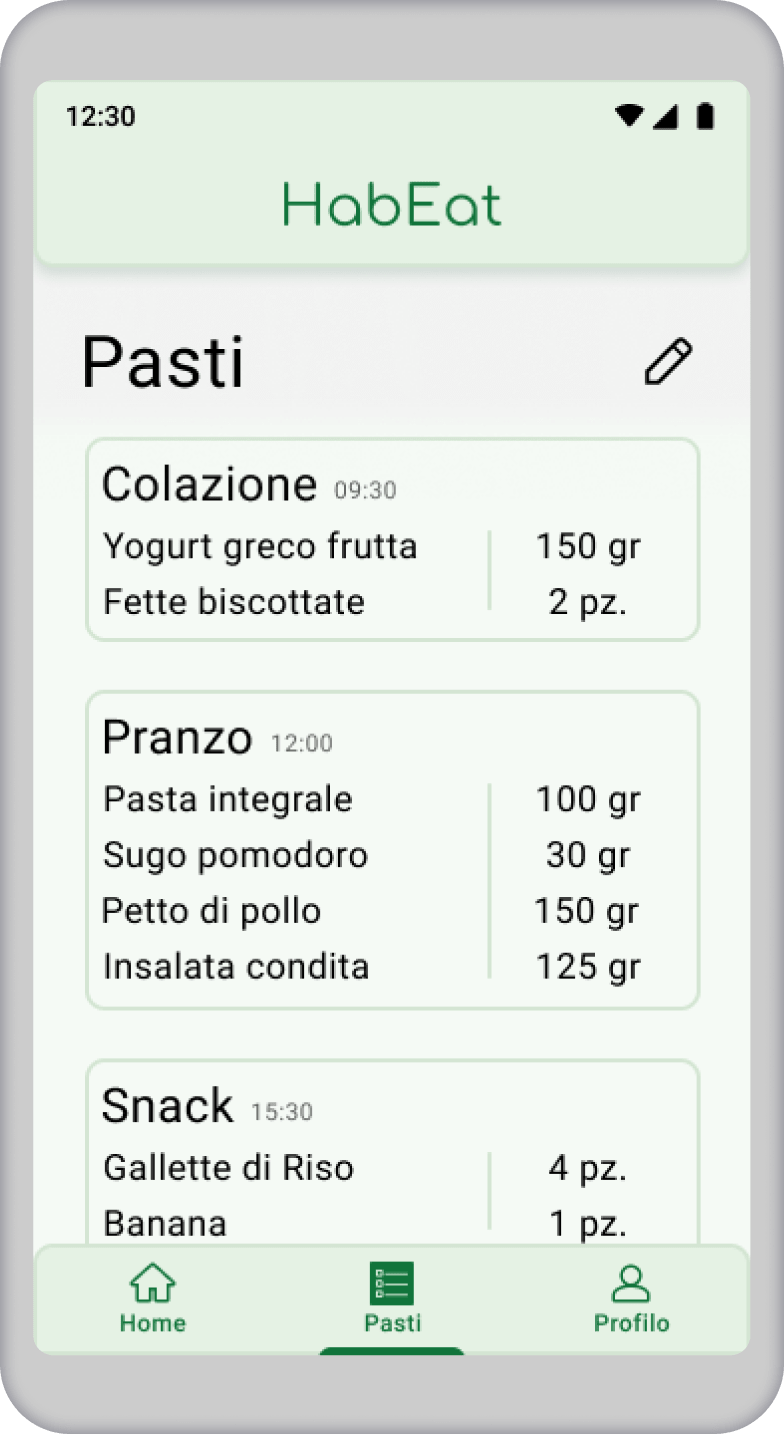
Meals allow the user to customize the diet, this feature makes the plan easier to follow and maintain without compromising its effectiveness.
In this screen, the user can access the Nutrition tips discovered and also see the weight progress.
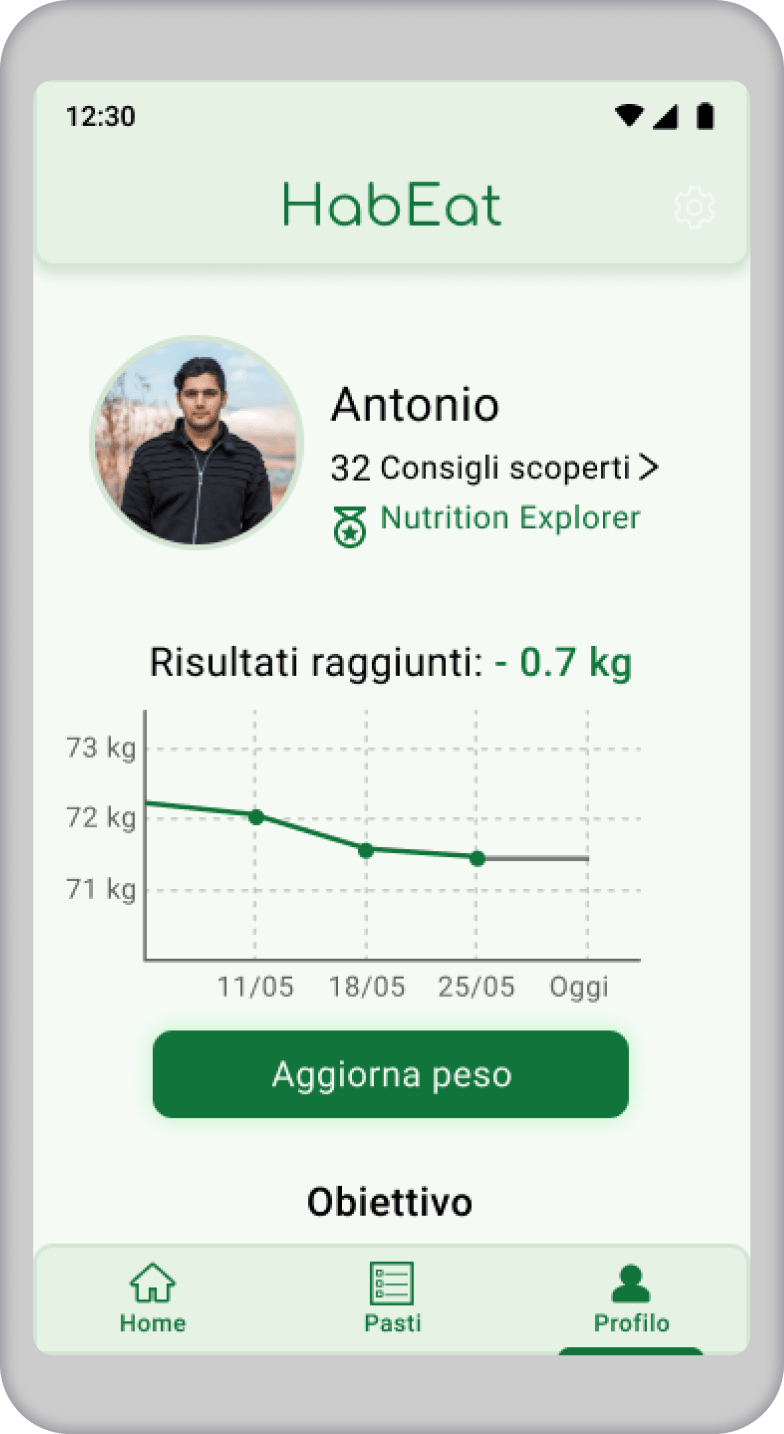
I have conducted 6 Moderated Usability tests both in-person and remote. I have found that some of the features didn’t get noticed enough and some words weren’t understood.
The term “Nutrition Tip” and “Aggiungi Status” weren’t understood by respectively 70% and 80% of participants so I changed them. Also, users expressed the need to have a section where they can find all the Nutrition tips discovered.
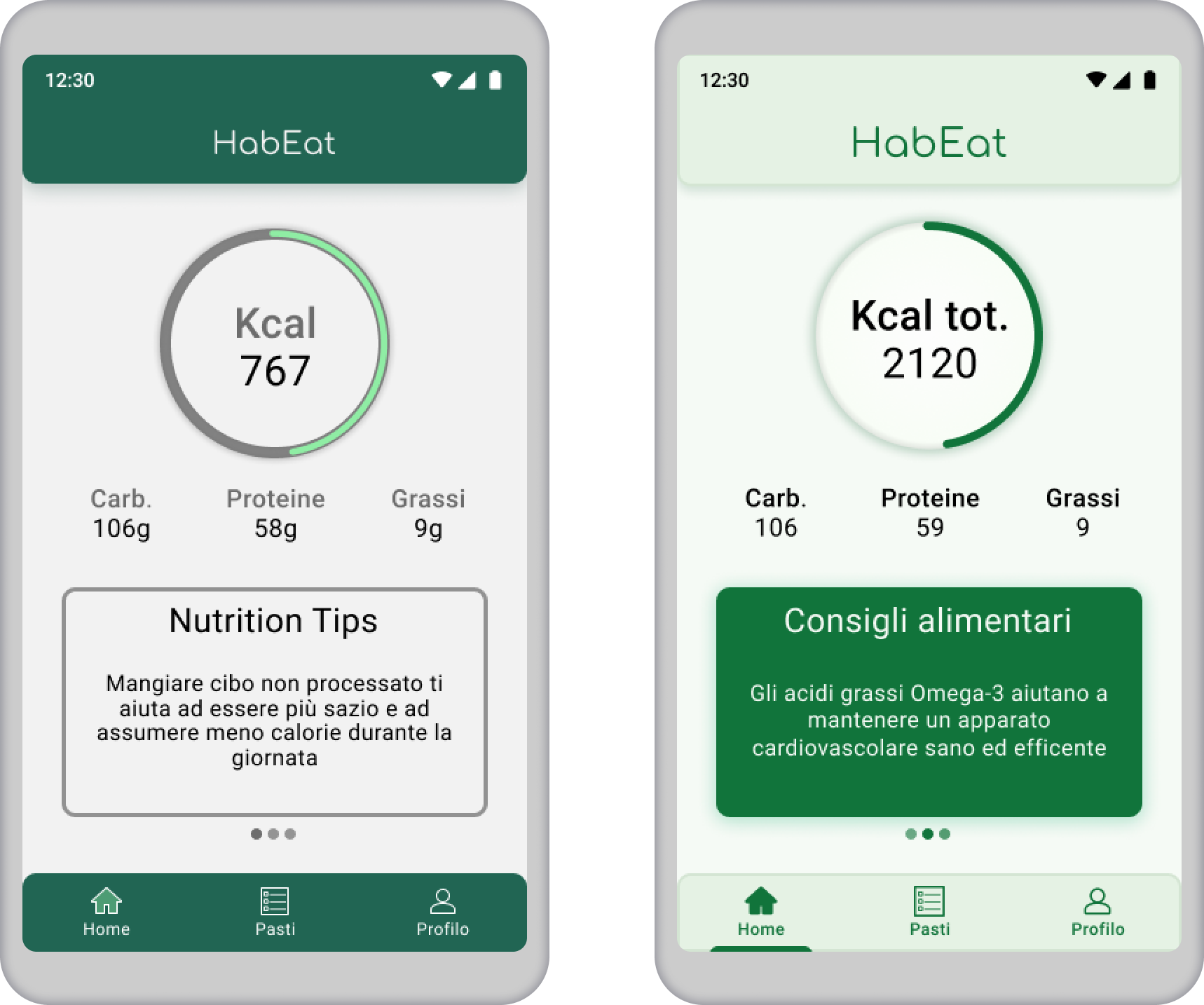
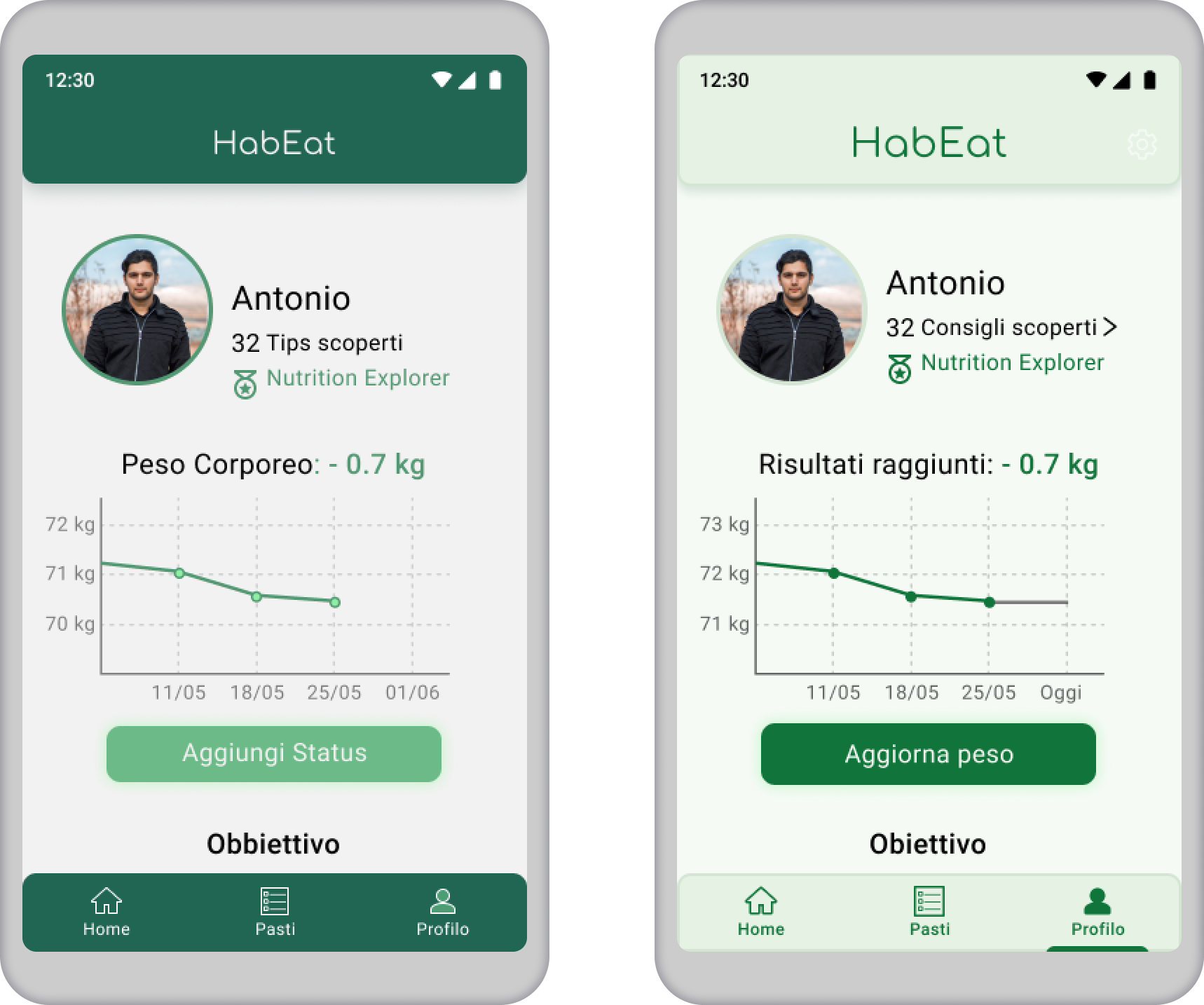
HabEat helped me to comprehend how to manage a project with low time
(3 weeks) and resources.
The first hypothesis for solving the problem was a delivery service with ready-to-eat meals because I thought that the main issue was laziness. During the research, I happily found that I was wrong.